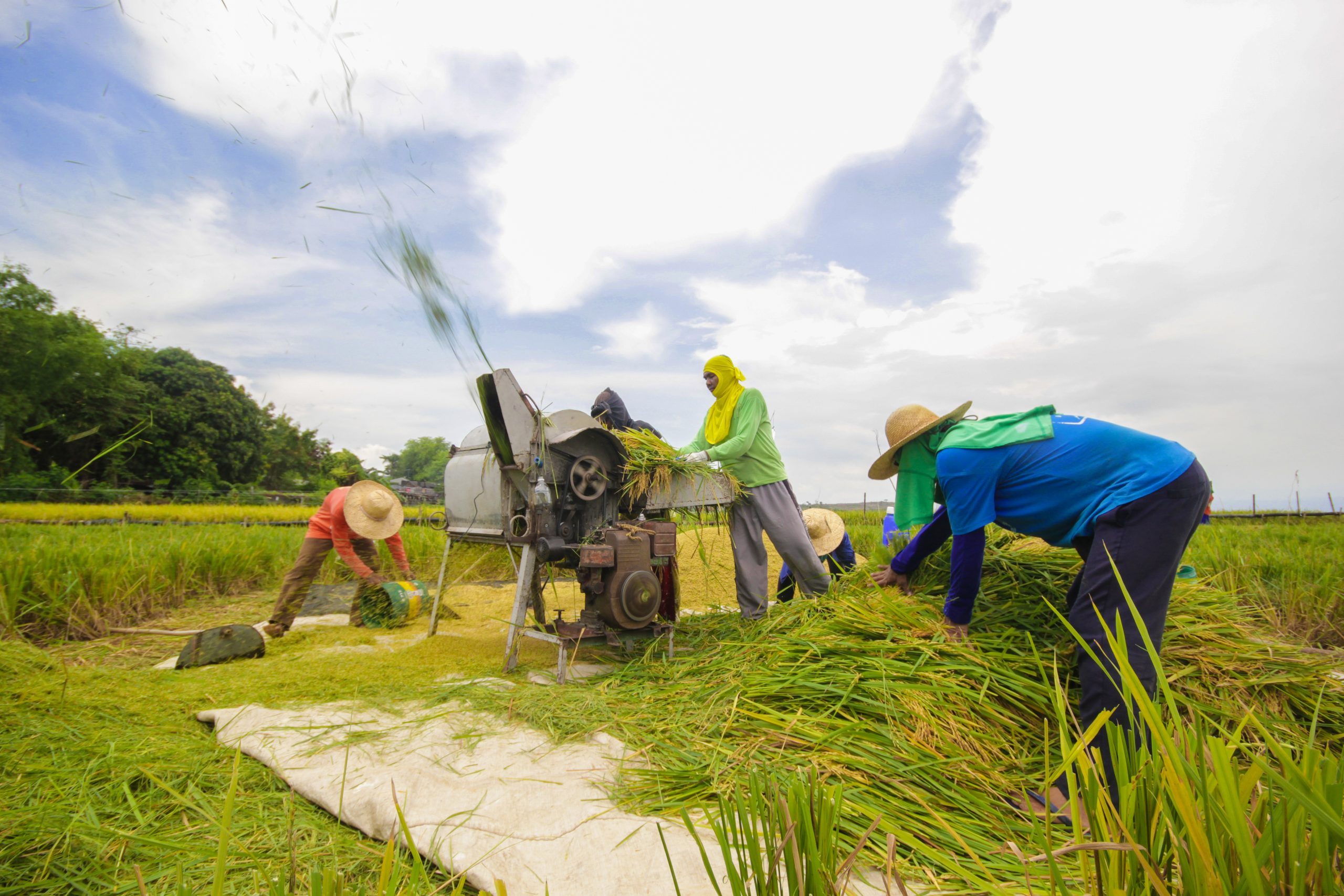
The Department of Agriculture (DA) targets to produce more palay (unhusked rice) and import less rice this year, as farmers begin to reap the initial benefits of the government’s Rice Competitiveness Enhancement Fund (RCEF) program.
“We aim to harvest 19.6 million metric tons (MMT) of palay, net of damage due to adverse weather conditions,” said Agriculture Secretary William Dar, during his first media briefing, on January 3, 2020, at the DA main office in Quezon City.
“Our 2020 palay yield forecast would be three percent more than the estimated 2019 palay output of 19 MMT,” added the recently-confirmed DA chief.
“We expect that initial benefits of interventions under the P10-billion RCEF program, particularly on inbred rice seeds given free to farmers, will be realized during the dry and main season crops starting this year,” Secretary Dar added.
Inbred certified palay seeds produce an average of 4.54 MT/ha as compared to farmer home-saved seeds’ yield of 3.50 MT/ha and traditional seeds’ yield of 2.13 MT/ha, according to the DA-Philippine Rice Research Institute (DA-PhilRice).
“Hence, with RCEF seed intervention, we would generate an incremental yield of at least one MMT, as we will provide farmers nationwide, tilling a total of one million hectares, free certified palay seeds,” said Secretary Dar.
The DA-PhilRice started distributing certified palay seeds in October 2019 for the dry-season planting in 947 rice-producing towns and cities in 57 provinces.
Under RCEF, P3 billion is set aside each year for certified seeds up to 2024, where farmers will receive 40 kilograms (kg) per hectare of certified rice seed varieties for every planting season.
“Further, with the adoption of modern technologies, and mechanizing land preparation, crop establishment and harvesting, farmers could attain an incremental yield of another one MMT of palay per hectare,” the DA chief said.
Also under RCEF, the DA-Philippine Center for Postharvest Development and Mechanization (DA-PHilMech) will distribute P5-billion worth of farm machines and equipment to qualified farmers’ cooperatives and associations, and local government units.
PhilMech research shows that mechanizing rice farming operations can reduce total palay production cost by P4/kg from the current average of P12/kg.
“We have yet to mechanize Philippine agriculture, at a level of at least four horsepower (hp) per hectare (ha), and be at par with our ASEAN counterparts,” said Secretary Dar.
Studies of the DA-PhilMech show the country’s level of mechanization is 1.23 hp/ha for all crops, 2.31 hp/ha for rice in all provinces, and 3 hp/ha in major rice-producing provinces like Isabela and Nueva Ecija.
Under RCEF, rice farmers will also receive credit support worth P1B, through Land Bank of the Philippines (LBP) and Development Bank of the Philippines (DBP), and another P1B for trainings and scholarships through the DA’s Agricultural Training Institute (ATI), PHilMech, and PhilRice, and DTI’s Technical Education and Skills Development Authority (TESDA). ### (DA Communications Group)
——
Reference:
Noel O. Reyes
Spokesperson and Assistant Secretary
for Communications and Media Affairs
CP: (0920) 4889686
Landline: (02) 892-98183













